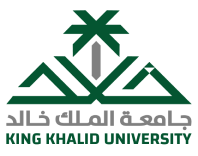The faculty of engineering started with six departments: Civil Engineering, Mechanical Engineering, Electrical Engineering, Chemical Engineering, Industrial Engineering and Architecture. The authorized body i.e. MoHE (private institutions and Council of Higher Education for public institutions) has approved the all aforesaid programs via. MoHE/9683 dated 05/08/1426. Until the 1st Semester of 2007 the Bachelor of Science in Civil Engineering programs resided in the Department of Civil Engineering. The first set of students in Civil Engineering graduated in 2012. The needs of the industry and the university’s ability to respond to the needs have helped shape the growth of the programs offered by the department. The faculty/staff of the Civil Engineering (CE) Department has implemented many modifications to the CE curricula.
Vision
Providing excellence in Civil Engineering at par the international standards.
Mission
Providing a distinguished education and professional skills in Civil Engineering that enable to use modern technology for societal improvement through professional and ethical practices, innovative research and community services.
Program Educational Objectives
PEO 1: Successfully enter the civil engineering profession as practicing engineers and consultants with prominent companies and organizations.
PEO 2: Incorporate economic, environmental, social, safety and global considerations when designing and investigating different systems.
PEO 3: Pursue professional licensure and engage in continued learning through professional development.
PEO 4: Pursue graduate education and research at major research universities in civil engineering.
PEO 5: Demonstrate leadership and service within their profession and in their communities through participation in professional societies and community services.
The evaluation of Civil Engineering students is discussed in individual sections below for both incoming freshman and transfer students.
Civil Engineering Program Study New Plan & Course Description for the Academic year 1444-1445
Civil Engineering Program Study Old Plan & Course Description for the Academic year 1444-1445
Civil Engineering Program Study Plan & Course Description for the Academic year 1439-1444
Civil Engineering Program Study Plan & Course Description before the Academic year 1439-1440
- Student Outcomes
- Graduate Attributes
- Program Learning Outcomes
 COLLEGE OF ENGINEERING
COLLEGE OF ENGINEERING